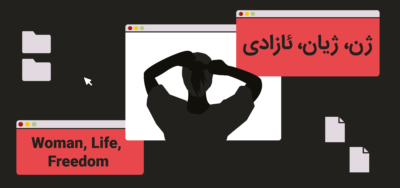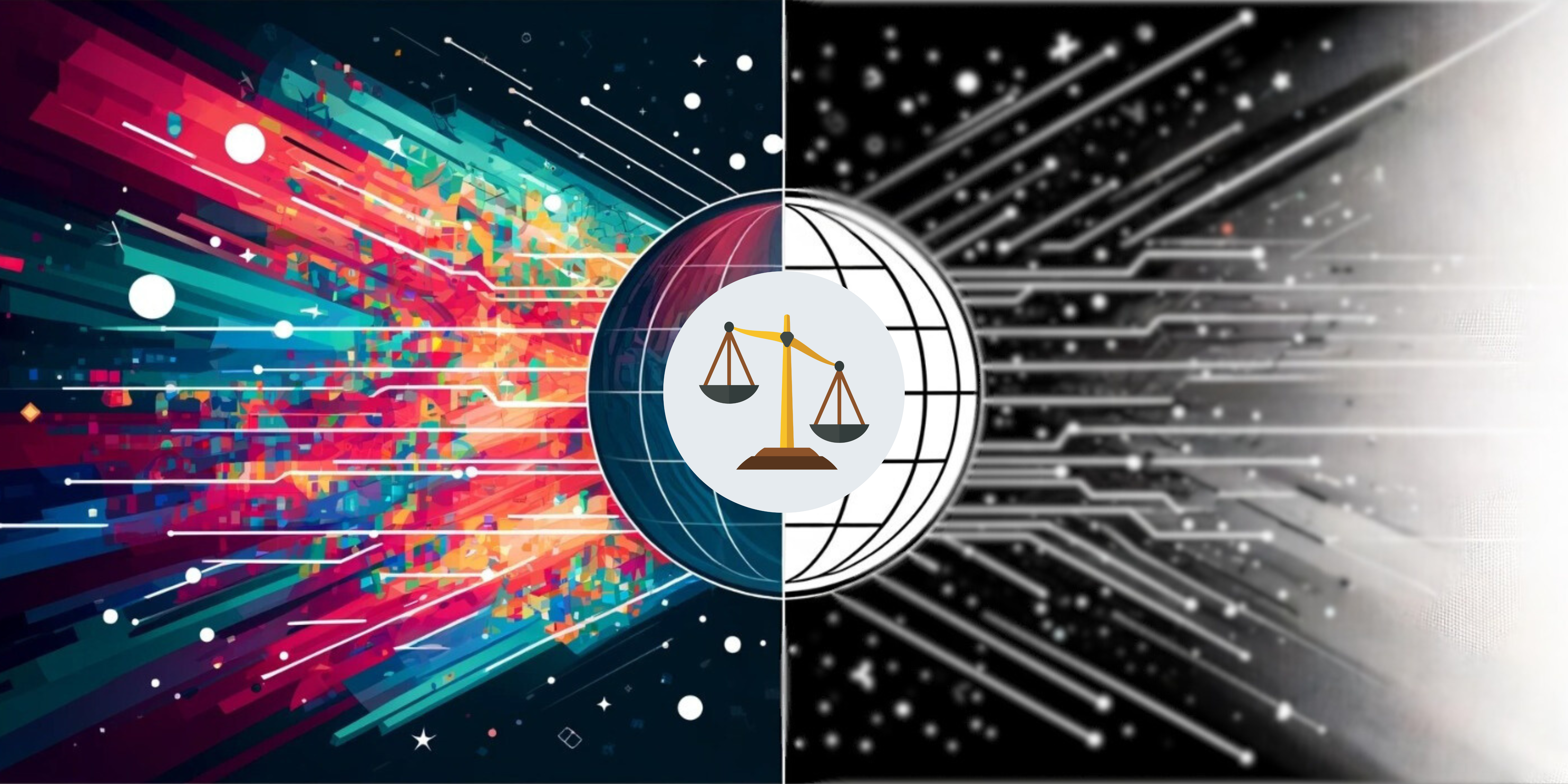Summary
Iranian internet policies were marked by a few significant developments in the last month, namely increased cooperation with Russia, limits on foreign access to Iranian websites, a rollout of a layered internet system, and the failure of a bill that would have protected Iranian internet regulators from lawsuits.
The ICT Minister of Iran’s recent trip to Russia, the subsequent unfiltering of the Yandex search engine, and the launch of an Iranian satellite on a Russian rocket, all signal the beginning of Russian-Iranian cooperation in the area of information technology.
This cooperation entered a new phase with the ratification of the “Agreement on Collaboration Between the Islamic Republic of Iran and the Russian Federation in the Area of Information Security” on June 6, 2022s. Unlike Iran’s agreement with China, which focused on the development of basic services including search engines, email, messaging services, and basic software like operating systems and mobile phones, browsers, and anti-viruses, the agreement with Russia centers on security collaboration.
In general, it appears that Iran is looking to address its weakness in online services and infrastructure mostly with the help of the Chinese, and its security issues with the help of the Russians. Still, Iran has started to bank on Russia in certain infrastructural matters, demonstrated by a recent satellite launch and adoption of Russian-made foreign search engines for content control demonstrate that as well.
Another significant recent development has been the increase in restrictions on access to services and content in Iran for those outside the country. It seems that, whatever progress is made, Iran is able to restrict not only access to information outside the country for those living inside, but also information inside the country for those living outside, in such a way that domestic data ranging from government institutions to banks has been blocked. Iran’s tech community calls such an action “Iran Access”, meaning if a website is “Iran Access” no one from outside the country can access that website.
Iran claims it is taking these actions to combat cyberattacks. Reports from Kaspersky, however, indicate that Iran has one of the most compromised cyberspaces in the world, so it very much appears that these restrictions are a failed policy, that have not provided any security benefit, and only serve to control access to information.
Additionally, the rollout of a layered internet system is also picking up pace. This model is characterized by differential access to online content on the basis of particularities of identity and status, such as age, gender, or profession.
Seyyed Javad Hosseinikia, Majles deputy and member of the Working Group on Determining Instances of Criminal Content, announced that “we’re in the process of removing internet filtering for professors and faculty at particular universities.” The Raisi administration is trying to garner public opinion for the final rollout of a tiered access system, under the name of “free” and even sometimes “uncensored” internet. While somewhat of a positive move, this connectivity favors access to the National Information Network (NIN) over the international internet. According to the plan, two-thirds of the traffic would be able to access government-approved websites on the National Information Network intranet, with the remaining third accessing the (international) internet.
In good news, the Bill to Reform the Law for Organizations and Trial Guidelines for the Court of Administrative Justice was defeated in July. Now that it has failed to pass, Iranian citizens will be able to file suit against decisions of the Supreme Cyberspace Council.
Read more about the details and developments in internet policy in the month of July below.

Access Clampdowns for Users Outside Iran to Some Banking Services
On July 5, the newspaper Hamshahri reported that some Iranian banks had restricted the ability of users outside the country to access their bank accounts. This move, in line with a process called “Iran Access,” denies banking access to anyone using a foreign-based IP address. In its report, Hamshahri quotes a cybersecurity expert inside Iran, who says such measures have been taken to prevent cyberattacks.
Start of Iran-Russia Collaboration in Communications and Communications Technology
On July 22, ISNA New Agency reported the signing of a cooperative instrument between Iran and Russia, quoting Communications Minister Eisa Zarepour. ISNA wrote that the cooperation would be in the area of “communications and information technology.” Zarepour explained, “With the signing of this instrument, the ground has been prepared for greater deepening and development of collaboration in communications, telecommunications, software, hardware, and digital service development between the two countries, and from now on Iranian companies will have an effective presence in Russia’s markets.”
Filtering Committee Member: Filtering to be Removed for University Professors
During a Majles session on July 17, Seyyed Javad Hosseinikia, Majles deputy and member of the Working Group on Determining Criminal Computer Content, said that “Contrary to some views on filtering, we’re in the process of removing internet filtering for professors and faculty at certain universities. In the short term, this plan will be implemented experimentally. In the next phase, the plan will be implemented for professors at all universities in the country, and unfiltered internet will be available to professors within universities.”
Free Internet Registration for Low-Income Iranians
On July 12, the ICT Minister announced that heads of households among state subsidy recipients in the three lowest income brackets could register to receive free internet access by the end of that week. The report refers to 30-gigabyte annual internet for those meeting the qualifications.
Eisa Zarepour: We Will Work to Make Sure People’s Need for Circumvention tools is Minimal
At a July 28 conference on the capacity of the National Information Network organized at the Communications and Information Technology Research Center, Eisa Zarepour said “A great many of our fellow Iranians’ phones are now infected with malware, and the route of transmission of this malware are circumvention tools and VPNs…We have a program in the Ministry of Communications to reduce people’s need for circumvention tools. A program, which will be announced in its own time, has been arranged so that people won’t have the need for circumvention tools, and necessary services will be rolled out so that use of circumvention tools is minimized. This is because a great many of the viruses on people’s phones, tablets, and laptops are caused by circumvention tools use.” The comments come at a time when Iranian authorities are introducing their own “legal VPNs”. Filterwatch argues that these developments will likely lead to greater information controls and state surveillance.
Supreme Cyberspace Council Requests Launch of Domestic Browser and Search Engines
The necessity of broadening government digital services was taken up at a July 12 meeting of the Supreme Cyberspace Council. Noting that domestic messaging apps have recently been well received by Iranian users, members of the Council asked for domestic browsers and search engines to be launched.
Failure of the Bill to Reform the Law for Organizations and Trial Guidelines for the Court of Administrative Justice
The Supreme Supervisory Board of the Expediency Discernment Council examined the Bill to Reform the Law for Organizations and Trial Guidelines for the Court of Administrative Justice on July 5. It rejected the plan on grounds that it was contrary to the general policies of the government. The measure had been approved by the Majles on June 19 and would have barred legal complaints against the decisions of the Supreme Cyberspace Council before the Court of Administrative Justice.
Reform of National Data and Information Standardization Bill
At a July 31 public session of the Majles representatives voted to reconcile the Reform of National Data and Information Standardization Bill with concerns raised by the Guardian Council. Per this measure, national data and information is to be considered part of public property, the management of which rests with the government.
 Price Increases and Smuggling, the Outcome of Restrictions on Electronics
Price Increases and Smuggling, the Outcome of Restrictions on Electronics
On July 23, Mohammad Reza Faraji Tehrani, head of the Tehran Computer Technologists Union, spoke to ISNA about restrictions on the technology market: “The Ministry of Industry, Mines and Trade has enforced serious restrictions in the ordering of technological items, and importers must import items like laptops, tablets, and printers at half the rate they have in recent years.” Faraji said that these import restrictions would result in price increases and smuggling in the country, given the market’s high need for these items.
SATRA Letter to Islamic Republic of Iran Broadcasting: Implementing Restrictions on Online Video Publishing Platforms
On July 17, ISNA published a video regarding a letter from SATRA (Persian acronym for “Organization for Regulating Audio and Visual Media Widespread in Cyberspace”) to the head of Islamic Republic of Iran Broadcasting (IRIB). Items on SATRA’s agenda included platform filtering, refusing service to data centers, getting rid of the E-Nemad logo, a lack of cooperation in advertising, and an ultimatum and a one-week period for complying with SATRA’s regulations.
The policy of bringing online film publication platforms under IRIB control has, for some time, sparked conflicts between IRIB and the platforms. Majles representatives have even weighed in on this (either to support or oppose). The government is supposed to pursue the standardization of all audio-visual content, which includes expanding control over video distribution platforms and children’s internet content.

National Cyberspace Center Chief: Security Development Vacuum Has Attracted Iranian Experts
Abu Alhassan Firouzabadi, head of the National Cyberspace Center, said at the fifth conference on the security capacity of the National Network on July 28, 2022: “The cost incurred by cyber issues in developed countries amounts to something like 100 billion dollars annually, and this security development vacuum in the world has led developed countries to act to attract expert talent from other countries, including Iran.”
Regulatory Report: An Investigation of Landline and Cellular Internet Penetration
On July 30, ISNA, citing figures from Iran’s Regulatory Organization, reported that active cellular telephone lines had increased to 141 million by the end of the first three-month period of the Iranian year (ending June 21), bringing penetration to 167 percent. These same figures show that landline penetration in Iran has reached 34.64%, comprising more than 38 million appointed lines, over 37 million of which pertain to the Telecommunications Company of Iran.
Cell Phone Disruptions in Iran
Zoomit reported that on the afternoon of July 30, some Hamrah-e Aval mobile users temporarily experienced connection disruptions. The company said this had been caused by a cut to a fiber optic cable in Khorasan Razavi Province, and later said it had been resolved.
Landline Internet Disruptions in Iran
Zoomit also reported a country-wide landline internet outage from approximately 8:30 AM to noon on July 25. Following the outage, Iranian users could only visit sites hosted within the country. According to Zoomit, it was said the disruption stemmed from an electrical outage at the Telecommunications Infrastructure Company (TIC). The Tehran Telecommunications Company, meanwhile, put out a statement claiming that “The outage is not related to the Telecommunications Company of Iran.”The day after, in response to the disruption, Communications Minister Eisa Zarepour apologized publicly.





